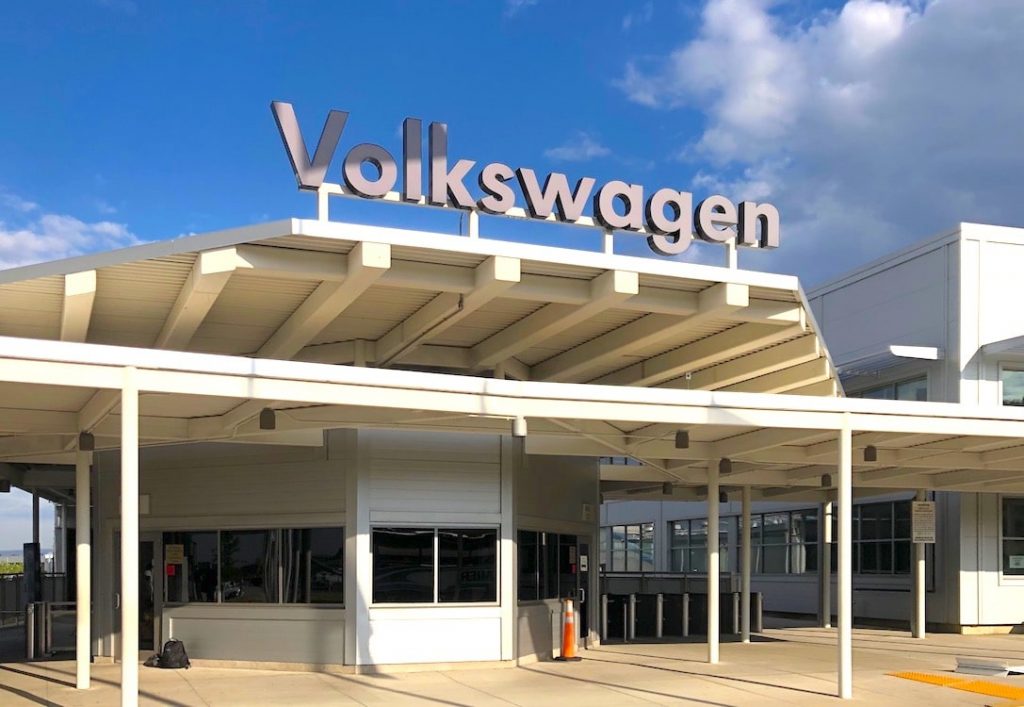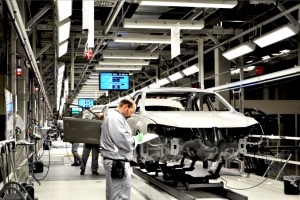
VW plans a “phased restart of production” at its global factories stretching into May. The plant in Chattanooga, Tennessee could begin to reopen the week of April 27.
With its factories in many key markets shuttered and sales largely dried up, Volkswagen said Thursday it is abandoning its original sales and earnings outlooks for 2020 – with no clear alternative in sight.
The German automaker is just the latest to admit that it’s been crippled by the coronavirus pandemic which is expected to result in a massive decrease in global car sales this year. Ford earlier this week said it expects to lose $600 million for the first quarter and is taking aggressive steps to preserve cash.
“The full year outlook for 2020 … can no longer be achieved,” VW said in a statement, pointing to a “decline in customer demand and supplier bottlenecks (which have) led to production stops.”
(Nissan, Volkswagen extends shutdown at U.S. plants.)
Even though the global automotive market was expected to slip a bit before the coronavirus outbreak, Volkswagen was expecting a good year, with sales roughly on par with the 11 million vehicles it delivered in 2019. It had also expected to see revenue grow as much as 4%, while operating profit margins were targeted to come in somewhere between 6.5% and 7.5%.

Among the plants closed is one in Zwickau, which was ramping up production of VW’s first long-range EV, the ID.4
But all that is now out the window. And the automaker, which operates 12 separate brands, ranging from entry-level Skoda to ultra-luxurious Bugatti, acknowledged it simply doesn’t have an alternative scenario to offer just yet.
“It is currently not possible to determine when a new outlook can be made for the full year,” VW said in a statement
The world’s largest automaker isn’t alone in its confusion about what’s ahead. The coronavirus pandemic is challenging all economic forecasts since it is yet far from clear when global manufacturers will get back anywhere close to normal.
VW, the largest carmaker in China, was quickly hit by the outbreak in Hubei Province, much of that country’s automotive manufacturing base shuttered and millions of potential car buyers ordered to shelter in place. That situation has now repeated itself around the world as the virus has spread to Europe, the Americas and other regions of the world. In the U.S., overall car sales were down about 55% for the first half of April, J.D. Power reported this week.
(Volkswagen shutting European factories for two weeks, wars of “very difficult year.”)
VW began sending out warnings a month ago, CFO Frank Witter on March 17 forecasting earnings for the first quarter could tumble at least 50%.
In fact, operating profits tumbled to just 900 million euros, or $979 million, VW reported today, fully 80% below what it earned during the first three months of 2019. And its automotive net cash flow plunged 2.5 million euros into the red.
VW is hoping that it may soon be reaching bottom. It has already been ramping production back up in China, its single largest market. And it is rolling ahead on what it described as a “phased restart of production” elsewhere.
Plants in Zwickau, Germany and Bratislava, the capital of Slovakia, are scheduled to reopen next week, with other facilities in Portugal, Russia, Spain and the U.S. currently in line to start up again during the week of April 27. But VW won’t relaunch plants in Argentina, Brazil, Mexico and South Africa until next month.
Even when those factories do get back in gear they are not expected to reach anywhere near capacity for a while, according to various industry analysts. For one thing, automakers will need to take precautions, such as social distancing, to prevent new outbreaks of COVID-19, the disease caused by the coronavirus.
(Fever pitch: coronavirus taking increasing toll on auto industry.)
Then there’s the reality that sales are expected to lag prior forecasts for months and perhaps even longer. During a media webinar on Wednesday, analysts with J.D. Power stressed that U.S. demand will likely continue to be well short of the trend line through at least July, with a real recovery not anticipated until 2021. Similar concerns surround sales in other key global markets, including China, Europe and Latin America.

